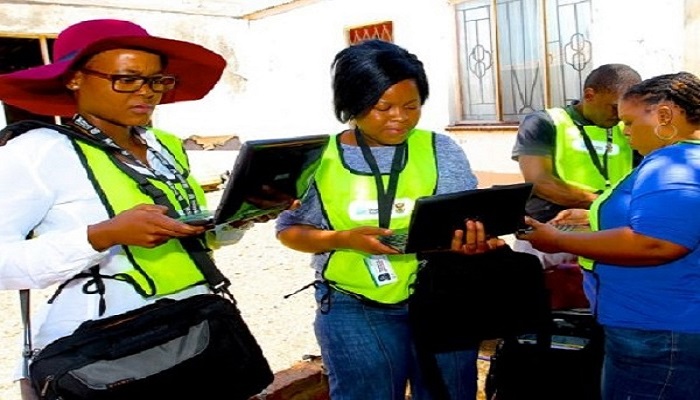All is set for this year's Census Night, which falls tomorrow Sunday, June 27, 2021.
The Census Night is the reference date for census enumeration and all questions asked during enumeration will relate to that Night.
All persons who spend the Census Night in Ghana will be counted. This includes everyone who spent the night inside household, people who spent the night at hotels, people in transit and all outdoor sleepers.
In effect, everyone in Ghana during the time of the Census would be counted.
The enumeration exercise will continue from June 28 and end on July 11, 2021.
The listing of structures to herald the main exercise began on Sunday, June 13, 2021.
The 2021 PHC will provide important information to support the evidence-based implementation of the national development agenda and support the tracking of achievements of the Sustainable Development Goals and Agenda 2063 of the African Union.
During enumeration, a census official (enumerator) will visit each household and administer a questionnaire (collect some information) from the head of household or any other adult in the household.
The enumerator will present their ID card on arrival. The interview to collect information must be conducted in the language that the respondent (household member) can understand.
It is important that everyone takes note of the Census Night and where one spent that night to answer the questions accurately.
All heads of households should also make note of all the persons that slept in their households on the Census Night, both usual members of the household and any visitors.
Enumerators will visit all households or institutions and collect detailed information on the persons that slept there on Census Night.
It is important that all household heads are able to answer these questions on behalf of others in their absence.
The information to be collected covers the following:
1. Travel history of household members who have migrated abroad
2. Socio-demographic characteristics (age, sex, education, ethnicity, religion etc.)
3. Literacy and education
4. Economic activity (employment status, job description, occupation, industry)
5. Difficulties in performing daily living activities (seeing, hearing, walking etc.)
6. Ownership and usage of ICT devices
7. Children born to women 12 years or over
8. Deaths of household members within the past 12 months
9. Housing conditions (construction materials of structure; water supply; asset ownership)
10. Sanitation (disposal of solid and liquid waste)
11. Source of water, lighting and cooking fuel.
Latest Stories
-
Embrace ICT to fit in digital world – Ho NYA boss to youth
15 mins -
We don’t want armed soldiers at polling stations – Tanko-Computer
18 mins -
Drama as police corner armed robbers inside locked forex bureau at Lapaz
29 mins -
Nigerian-born conquers childhood hearing loss to become KNUST’s overall best graduating student
54 mins -
ECOWAS Court orders compensation for violations against New Force’s Shalimar Abbiusi
1 hour -
Dreams FC denies allegations of attempting to sign Najeeb Yakubu
2 hours -
Election 2024: ‘Right to free and fair elections non-negotiable’ – Akufo-Addo
2 hours -
Kurt Okraku took out my passport from the U23 squad that travelled to Japan – Najeeb Yakubu alleges
2 hours -
Where hope fails: Ghana’s decaying home for the destitute
3 hours -
NDC Mining Committee for 2024 campaign refutes allegations of recruiting thugs for elections
3 hours -
Traction Control: A lifesaver with an off switch? Here’s why it exists
3 hours -
I don’t need anyman to woo me with money – Miss Malaika 2024 winner refutes pimping claims
3 hours -
”Kurt Okraku sabotaged my national team career because I refused to sign with Dreams FC” – Najeeb Yakubu
3 hours -
Businesses urged to leverage Generative AI for enhanced customer engagement
3 hours -
MultiChoice Ghana partners with Ghana Hotels Association to elevate guest entertainment
3 hours

